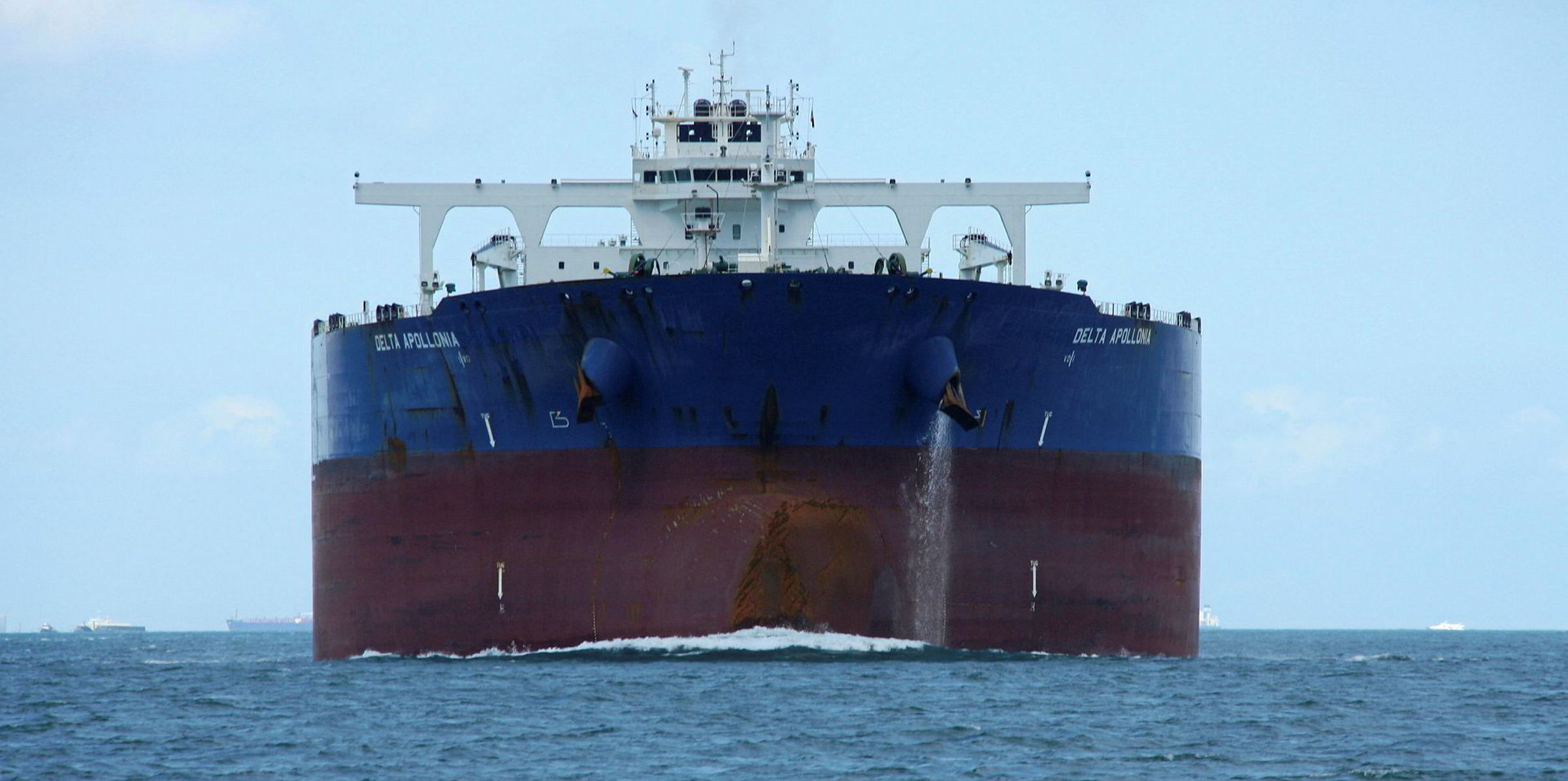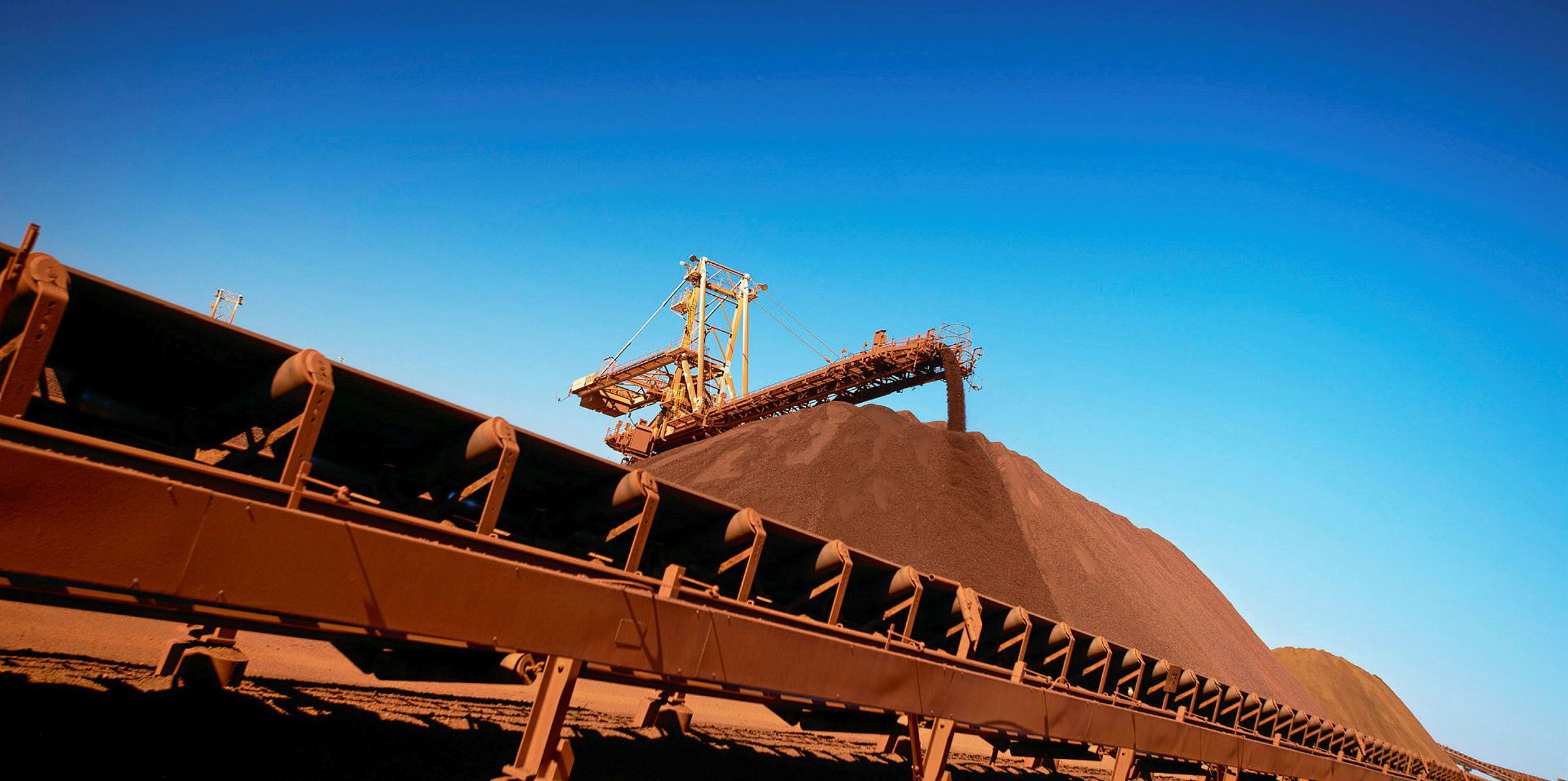Tanker and bulker owners could see asset values plunge as a global energy transition slices demand for their vessels and the world fleet shrinks, Maritime Strategies International has warned.
While containership owners will escape largely unscathed in the doomsday scenario as coal and oil become increasingly sidelined, shipping lenders will also be caught in the fall-out, MSI predicted.
It’s a scenario presented for a future world in which by 2050 oil consumption will have halved from today’s levels, while coal will be down by four fifths as renewables and biomass take a greater share of the market.
The idea of commodity vessels as stranded assets is not new to those in shipping.
Disruption expert Tony Seba warned during at Nor-Shipping in 2017 how the rise of electric vehicles and a collapse in oil demand could see a chance akin to cars replacing horses at the beginning of the 20th century.
The MSI report, undertaken on behalf of the European Climate Foundation, reasoned rapid decarbonization of the global energy market would have “radical implications for the global shipping industry”.
It has quickly been jumped upon by national media, with the Financial Times today running the headline “Oil tankers risk becoming ‘stranded asset’ in climate push”.
However, in terms of the forecast impact on asset values, it is capesize owners who should be the most concerned, according to the numbers presented in the report.
MSI projected a five-year-old capesize could see 40% of its value lost by 2030, compared with the cost of the same asset today, under its more severe scenario for shifting energy demands.
In this vision of the future, the dry bulk shipping industry would in 2035 be experiencing 14% less demand compared to today, before modest growth from grain and minor bulks begin to address the balance, the report said.
“Earnings for a capesize bulker would spend the 2030s averaging roughly half of their long-term median earnings,” MSI’s analysts wrote.
The report comes at a time when BHP is exploring LNG fueling for its latest round of Newcastlemax newbuildings and Shell is spearheading a drive for VLCCs powered by LNG.
Like the 1980, but worse
MSI warned the oil tanker industry wwould be most impacted by its projected change in energy consumption.
VLCCs face a 29% drop in value between 2018 and 2030, the report said, with the world tanker fleet set to shrink by one-third in that period as dire markets drive supply side disruption.
“By contrast, although the collapse in tanker demand in the 1980s is of a similar scale at 39%, it was only five years before tanker demand began to pick up again,” MSI said.
MSI predicted that in the 2030s VLCC earnings would underperform their long-term median by around a third.
Lenders in line of fire
“The destruction of demand has significant ramifications for owners and financiers of vessels,” MSI said.
“The destruction of demand has significant ramifications for owners and financiers of vessels,” MSI said.
“Ship financiers would also find themselves caught in a vice, with earnings unable to cover debt repayments and falling life expectancy reducing the runway to recover a loan before the vessel is scrapped,” the report continued.
“More efficient vessels may be somewhat better placed, as greater efficiency should lead to longer life expectancy.
“However, the prospects for successfully recouping a loan, never mind an equity investment, in a vessel heavily exposed to fossil fuel cargoes seem challenging.”
Despite its downbeat outlook the report did have some hope for owners of commodity vessels.
"There may, of course, be mitigating factors. Renewable or non-carbon fuels may emerge, as could synthetic fuels (eg from carbon capture), and all would provide alternative sources of demand that are ideally suited to conventional bulk or gas shipping,” it said.
“But all of these potential sources of demand are in their infancy and a distant respite from the bleak picture painted above.”
Investors expect
Environmentalists welcomed the new research with Stephanie Pfeifer, chief executive of Institutional Investors Group on Climate Change, noting the maritime sector was heavily exposed to the transformation underway across the global energy sector.
“Investors will expect companies to do more to preempt and address the implications from reduced demand for fossil fuels,” she said.
Johannah Christensen, managing director, head of projects & programmes, Global Maritime Forum, said: “Sober assessments of the implications of this energy transition on shipping are tremendously important to industry leaders and investors making long term strategic investment decisions, that will allow global shipping to continue to serve the needs of global trade and society at large.”
Marie Cabbia Hubatova, research analyst at Environmental Defense Fund, explained: “The shipping industry will itself need to move away from using fossil fuels to move their ships.
“Luckily the production of alternative fuels from renewable energy around the world can provide fuel for shipping, and development opportunities for any country producing the shipping fuels of the future.”








